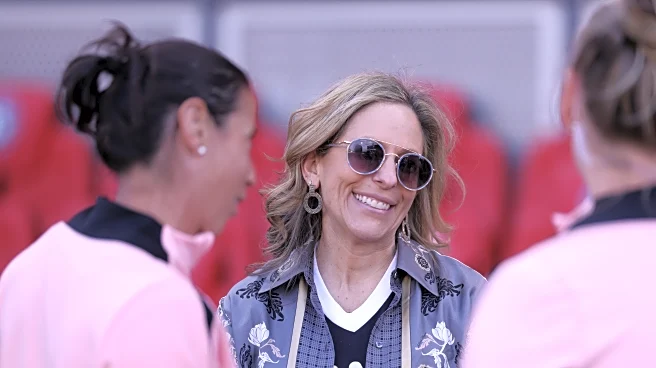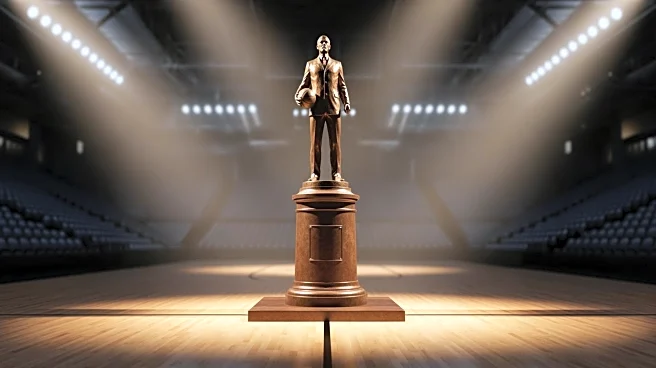NWSL Commissioner Jessica Berman reportedly threatened to fine the Kansas City Current over a weather delay, The Athletic reported Thursday. Their match against the Orlando Pride on Saturday was delayed
for around three and a half hours due to extreme heat with temperates over 90 degrees.
According to The Athletic, the league wanted the game to proceed when possible so it could be televised, although the teams were concerned about the safety of playing in the extreme weather. The match was scheduled to be broadcast on CBS.
Sources told The Athletic that Berman spoke with Current owners on the phone and told them the team could be fined for asking for a heat check. Berman allegedly told the Current that missing their broadcast window could cost the league millions.
The game was scheduled to start at 3pm, but ultimately kicked off at 6:28pm, when temperatures had lowered.
A statement from the NWSL to The Athletic regarding the decision to delay reads: “The league aims to play matches as scheduled whenever safely possible. While forecasts guide planning, we primarily rely on real-time, on-site weather data to make informed decisions in accordance with our inclement weather policies and protocols. Based on those inputs, the league made the decision to delay Saturday’s match.”
One factor that determines whether NWSL matches may continue in extreme weather is Wet Bulb Globe Temperature (WBGT). WBGT is a heat index that takes into account several factors, including air temperature, humidity, wind, sun and cloud cover, to determine the safety of the overall conditions.
The WBGT fluctuated throughout the day, reaching as high as 95.6 degrees Fahrenheit. Although at one point during the delay it dropped as low as 91.8 degrees Fahrenheit, below the league’s limit of 92.3 degrees Fahrenheit, sources said that that was likely due to a cloud, and they expected the temperature to rise again quickly.
“We are grateful to the Kansas City and Orlando medical staff for doing exactly what they are supposed to do in an extreme heat situation: prioritize safety,” NWSL Player’s Association Executive Director Meghann Burke told The Athletic.
“A 3 p.m. CT August kickoff in Kansas City was predictably too hot to play when the draft schedule first came out in January,” said Burke.
The WBGT threshold of 92.3 degrees Fahrenheit was previously higher, before the NWSLPA negotiated it down in the 2024 CBA. FIFPRO, the global union for soccer players, recommends an even lower threshold at 89.6 degrees Fahrenheit.
When weather conditions become as dangerous as they did on Saturday, the league and teams are forced to make difficult decisions. Ultimately, the Current’s decision to delay the game until the temperature cooled down was one that put player safety over profit.









